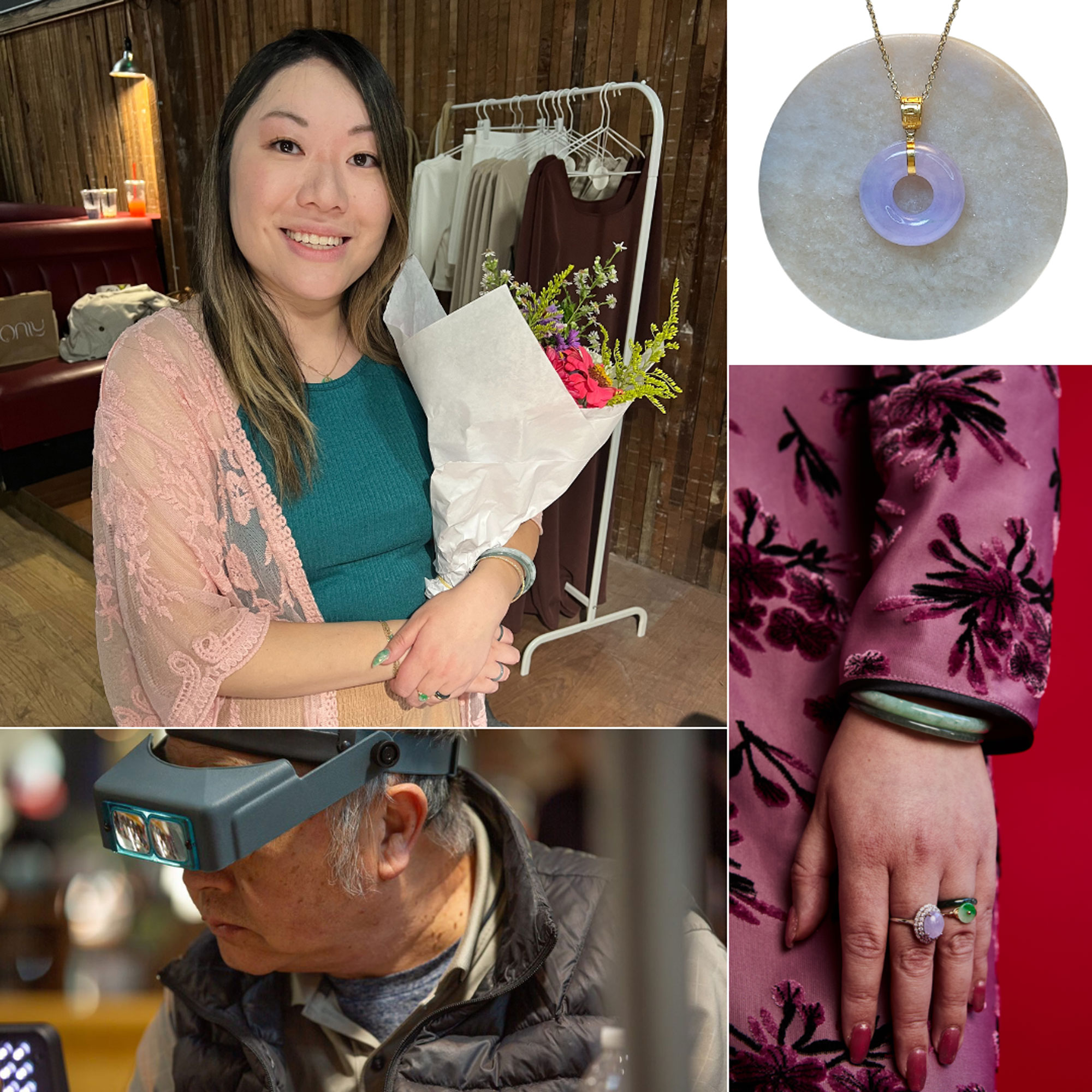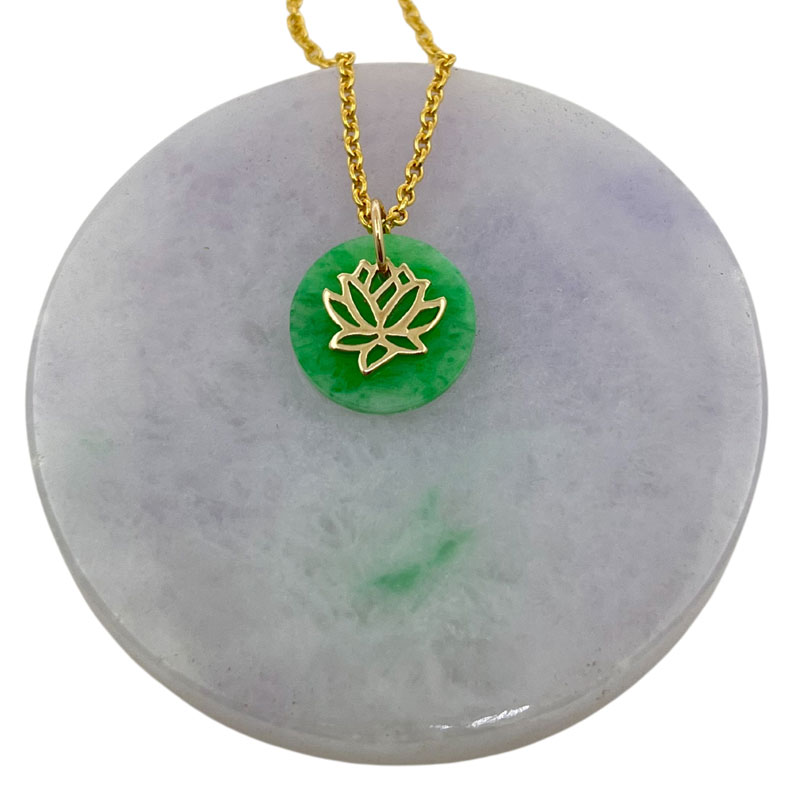
Designed in jade Designed in jade Designed in jade
Following in her family's footsteps, Christina Chan creates jade jewelry inspired by Chinese culture.
By Aleenah Ansari | Photos courtesy of Christina Chan | December 23, 2024
Christina Chan, ’16, ’19, grew up in the world of entrepreneurship and jewelry. Her dad ran his own jewelry business, and she often traveled to markets and gem shows with him. Along the way, she developed her own passion for designing jewelry that celebrated her Chinese heritage and could be worn every day. This led her to start Dyme Designs, a family-operated business specializing in jade jewelry, wire-wrapped creations and permanent jewelry inspired by her Chinese culture.
We sat down with Chan to learn more about the cultural significance of jade, designing pieces with intuition and how her time at UW informs her work.
This conversation has been edited for clarity and length.
Many of your jewelry pieces are made with jade. Can you tell me more about what makes jade a culturally significant material?
Jade has been used by many cultures across Asia and Latin America for thousands of years. In China, you’ll find jade carved in many forms from Buddhas to lotuses and dragons. We believe that jade brings prosperity and abundance and protects the person who wears it.
Jade is often a very generational stone often passed down through family. I’ve had several customers give some of my pieces to their mothers because they like it so much, and they come back to get another piece for themselves.
Jewelry can be a big purchase or investment. How do you make it more accessible to the community?
Growing up, I never purchased jade because it was expensive, which is why I want to make pieces that are still accessible to the community. That’s why I’ll pair jade with more cost-effective metals like sterling silver, and I also offer pieces in solid gold as well as jade permanent jewelry.
You design a lot of your pieces based on your intuition. What does that process look like for you?
Creating culturally significant pieces is often a spiritual practice for me. When I feel grounded and connected when designing a piece, I know it’s right for my business. For example, when I created the jade lotus necklace, it made me feel more connected to Buddhism and felt like a representation of being able to grow even in muddy waters. If I feel that way during the design process, I hope others will feel that way when they see or wear the piece.

The Dyme Designs Jadeite lotus pendant is a nod to Buddhist imagery; the lotus, which is a symbol of purity, is a beautiful flower that grows out of murky ponds.
How did your time at the UW and your degrees in English and Sociology inform your business?
I ran my jewelry business part-time during my undergraduate and graduate programs. I also did a marketing internship at the UW Office of Student Life, which was instrumental in teaching me about the importance of using equitable language and staying rooted in my community. I learned everything from marketing to higher education to fundraising, all of which help sustain my business now. As a way to give back to the local community, Dyme Designs has also sponsored events like the CID Block Party and Bush Garden fundraising events and provided products for raffles or auctions.
Do you have any advice for small business owners who are learning to follow their intuition?
A business is a representation of your identity and values as a small business owner. In my case, Dyme Designs is a reflection of my identity as a Chinese American growing up in South Seattle. There are many opinions to consider when you’re running a business, but you get to make the final decision based on what’s important to you. I’m glad I decided to follow my own narrative of what success looks like and take on work I am passionate about.
Shop Dyme Designs online, at one of their wholesale partners or at the Fremont Sunday Market.
About the author: Aleenah Ansari (she/her) is equal parts storyteller, creative problem solver, and journalist at heart who’s rooted in the stories of people behind products, companies, and initiatives. She writes about travel, entrepreneurship, mental health and wellness, and representation in media for Insider, The Seattle Times, Byrdie, and more. You can usually find her searching for murals, reading a book by a BIPOC author, or planning her next trip to New York. You can learn more at www.aleenahansari.com.